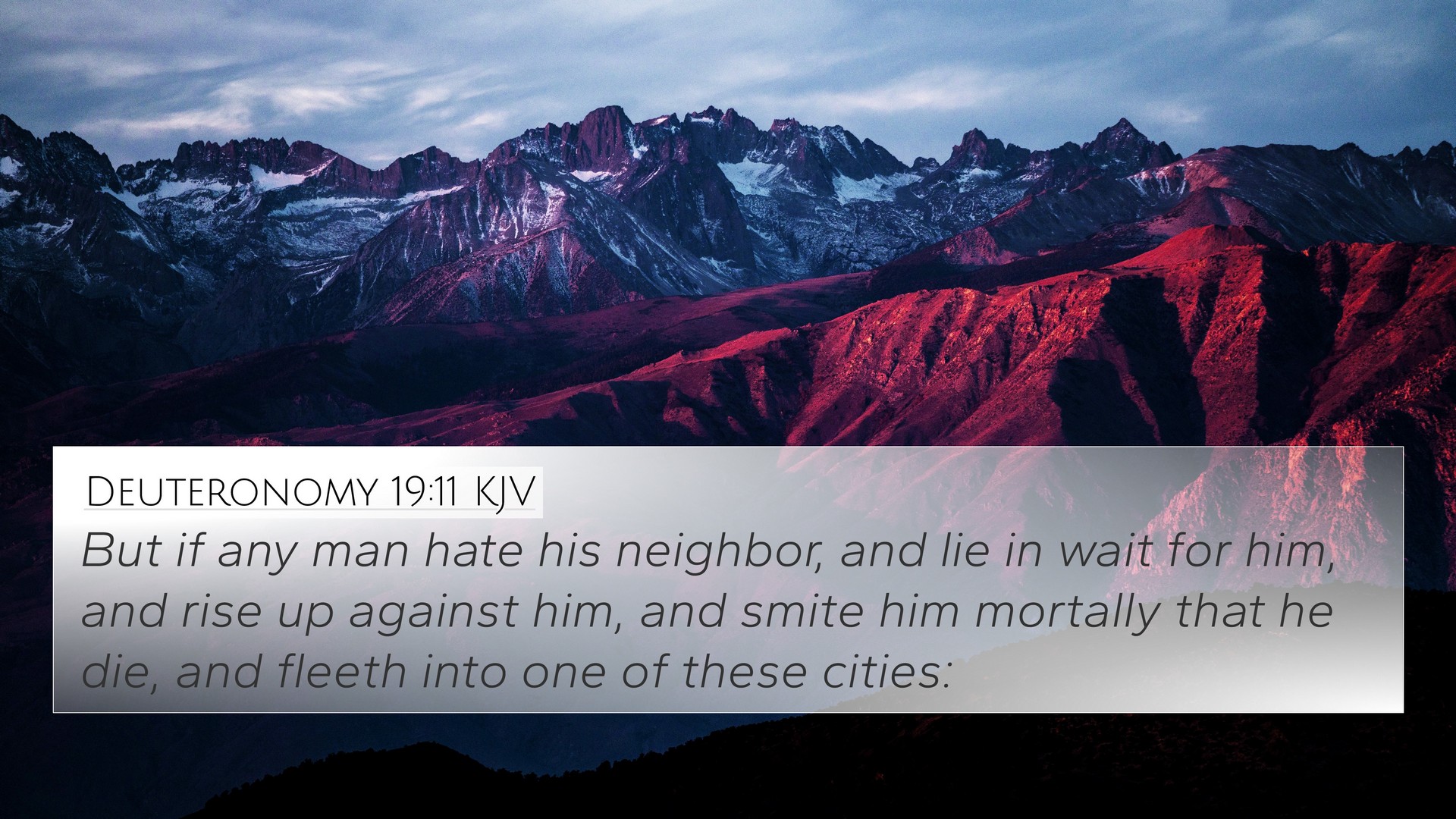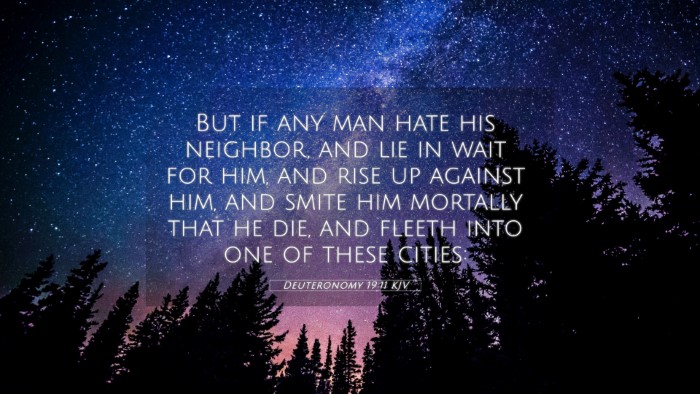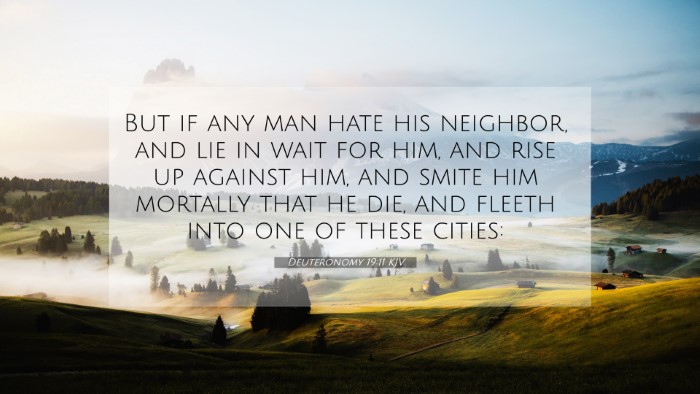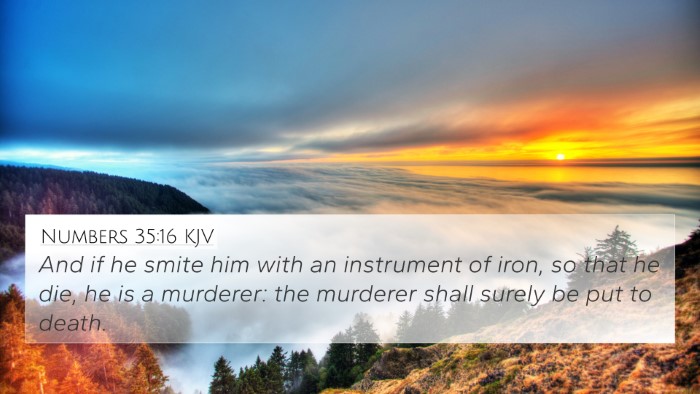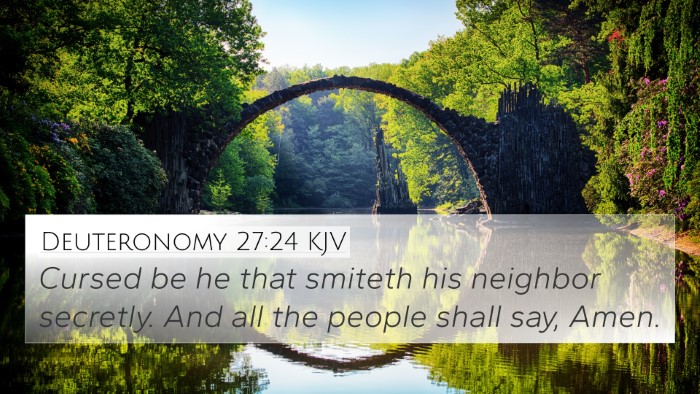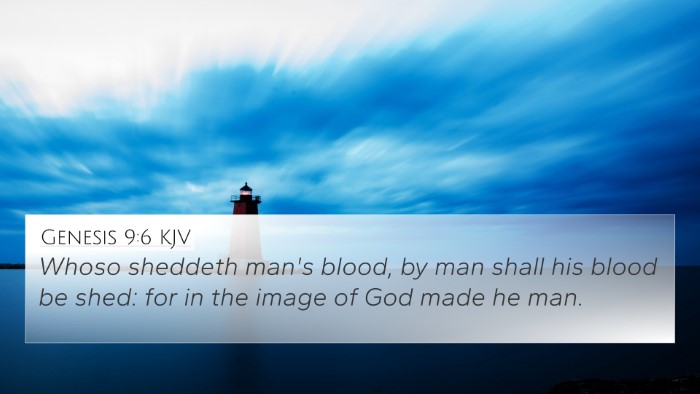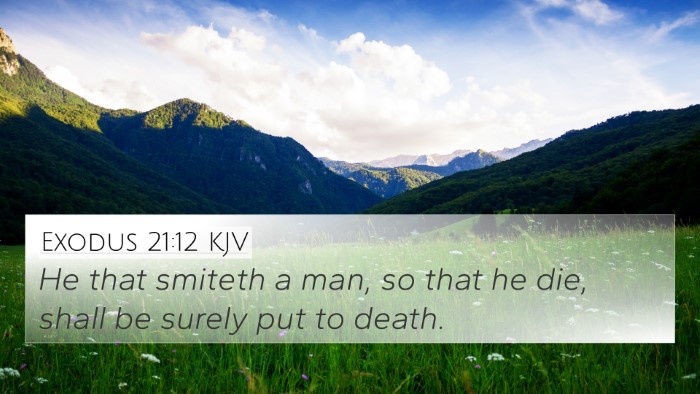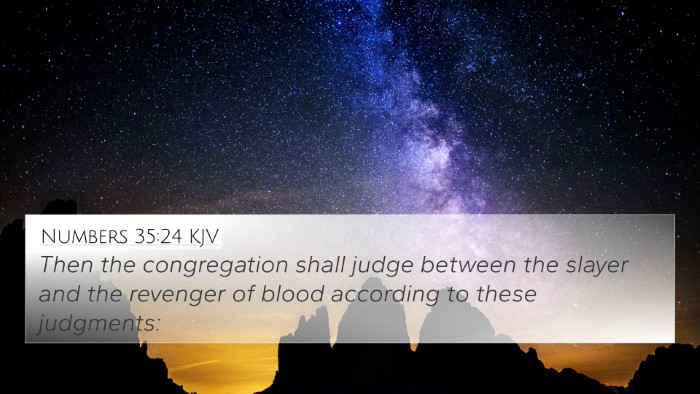Understanding Deuteronomy 19:11
Verse: Deuteronomy 19:11 states, "But if any man hate his neighbor, and lie in wait for him, and rise up against him, and smite him mortally that he die, and fleeth into one of these cities:"
Summary of Meaning
This verse addresses the issue of premeditated murder and the legal ramifications surrounding such an act within the context of the cities of refuge established by Moses for individuals who accidentally caused death. Here, we see the distinction being made between intentional and accidental killings.
Commentary Insights
-
Matthew Henry:
Matthew Henry highlights the moral implications of hate and premeditation. He explains that this verse reflects God's justice, which recognizes the severity of willful sin. The contrast between accidental and intentional killing underscores the need for justice in society.
-
Albert Barnes:
Barnes points out that this verse illustrates the gravity of murder, noting that the act of lying in wait signifies a deliberate intention to kill. He emphasizes that such actions deserve punishment, and the cities of refuge were not for those who commit murder out of malice.
-
Adam Clarke:
Clarke expands on the theme of vengeance and the law concerning premeditated murder. He notes that there are consequences for hatred and planning murder, which speaks to the importance of internal moral conduct as well as external actions.
Connections with Other Bible Verses
Deuteronomy 19:11 connects with various other scriptures that illuminate themes of justice, law, and morality:
- Exodus 21:12: "He that smiteth a man, so that he die, shall be surely put to death." - This shows the seriousness of murder.
- Numbers 35:16-21: Discusses the law regarding murderers and avengers.
- Matthew 5:21-22: Jesus addresses the deeper implications of murder, linking it to anger and hatred.
- 1 John 3:15: "Whoever hates his brother is a murderer, and you know that no murderer has eternal life abiding in him." - This ties in the concept of hatred leading to spiritual consequences.
- Romans 13:9: "For this, you shall not commit adultery, you shall not murder..." - Highlights the moral laws applicable to all.
- Proverbs 6:16-19: Lists actions that God hates, including hands that shed innocent blood.
- Genesis 4:10-12: The story of Cain and Abel illustrates the consequences of anger and murder.
Thematic Bible Verse Connections
The themes of justice, morality, and the distinction between intentional and unintentional acts are prevalent in scripture:
- Justice: The necessity of a judicial system that distinguishes between different types of homicide.
- Hatred: Connection to the moral consequences of harboring ill intentions.
- Restoration: The cities of refuge serve as a means of protection against unjust blood revenge.
Tools for Cross-Referencing Bible Verses
Using a Bible concordance or a comprehensive Bible cross-reference guide can greatly help in understanding and exploring connections between various scriptures. Here’s how to make the best use of these tools:
- Identify Key Themes: Start with the central theme of the verse.
- Explore Related Verses: Look for verses that speak on similar subjects or moral lessons.
- Contextual Study: Understand the broader narrative surrounding both original and related verses.
Concluding Thoughts
In studying Deuteronomy 19:11, we gain insights into God's principles regarding justice, the significance of our actions, and the consequences of hatred. The connections drawn with other scriptures deepen our understanding of biblical morality and offer profound lessons applicable to our lives today.
